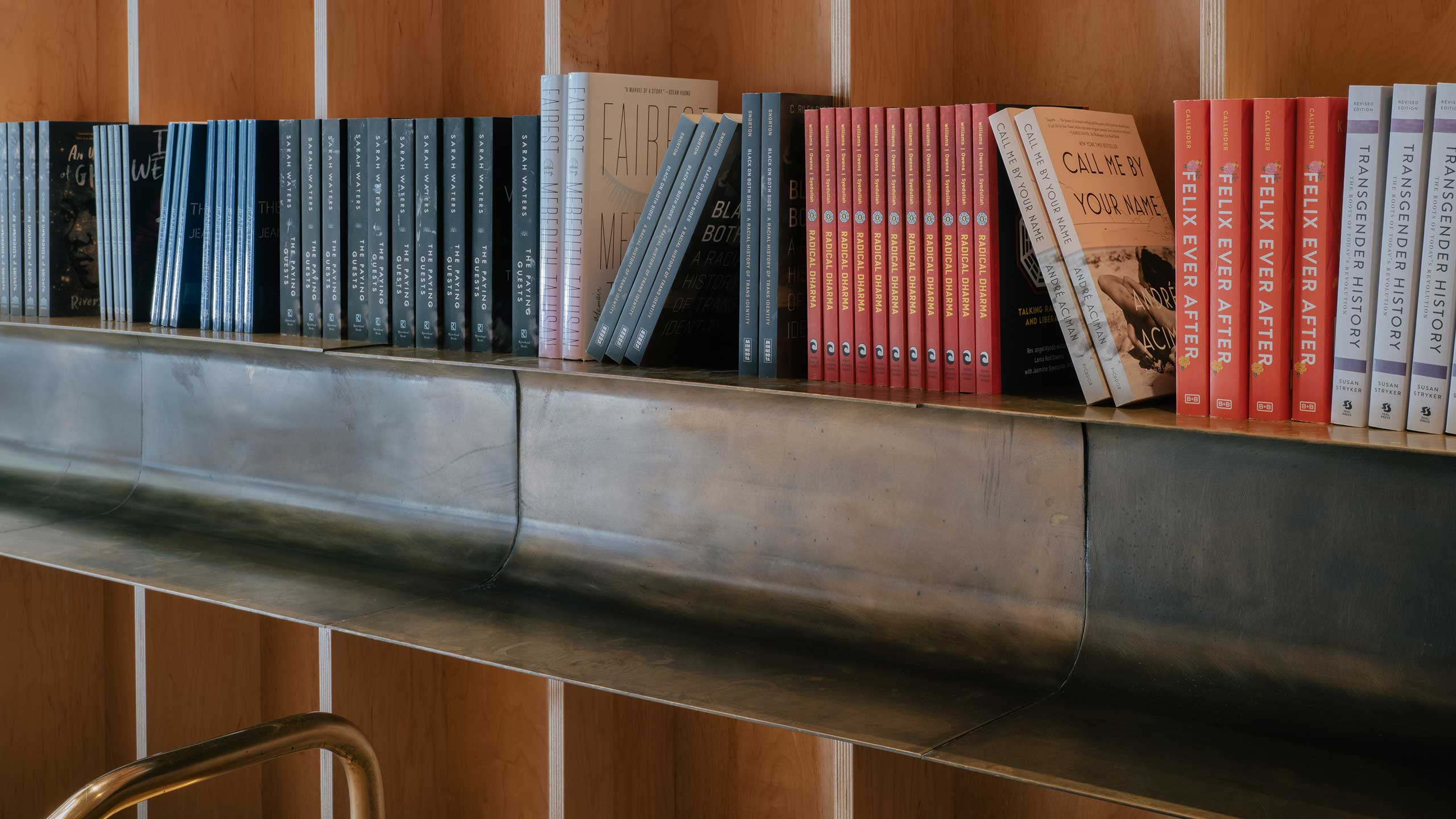Queer Library 2024 locations
Aesop QV in Melbourne 7-11 February
Aesop Ponsonby in Auckland 16-18 February
Aesop Bondi Junction in Sydney 28 February – 3 March
Aesop QV in Melbourne 7-11 February
Aesop Ponsonby in Auckland 16-18 February
Aesop Bondi Junction in Sydney 28 February – 3 March
We are communicative animals. Big on trying to find ways to express the limitless thoughts and feelings inside us to each other. The number of specific motivations for doing this are just as limitless, yet all are compelled by one instinct: to be understood. We attempt the endeavour with sounds. Movements. Images. Symbols. And when those expressions are executed effectively—when they come as close as possible to standing in for what they represent—they have the power not just to inform us, but to move us, and change us.
Among the most effective of our species’ communicative contrivances is the written word. Distil that rather broad categorisation into something more condensed, and we can find ourselves in the presence of literature: a mode of communication that struggles to find its rival in sophistication, or potency.

A world-changing tool Literature is an arena where the masterful communicator can capture all that is apparently amorphous and unknowable in the human psyche and transform it into a world-changing, and even lifesaving, tool. The shrewd among us regard and respect this tool. The wise among us use it. Use it to learn. Use it to live more meaningful, more connected lives.

The evolution of literature The well-commanded word has served our species from the beginning. Fashioned into a sharpened rock, it has fed us. As a flint and tinder it has kept us warm. In hammer-form, it has built us shelters. But one of the pitfalls of this ever-evolving tool—this dialoguing around and cataloguing of human experience—is that it has been dominated by one particular set of craftspeople. These power-holders, through chance or intergenerational privilege, have been both the witting and unwitting beneficiaries of generations of the dispossession, disenfranchisement and outright erasure of others. Encouraged to foster and fortify their environments, these loudest voices have been enabled—through sheer volume of both noise and mass—to develop the landscape in a way that reflects their values, and supports their needs. From this landscape, certain pervasive narratives have been able to grow and thrive, to the detriment of others—namely, narratives around gender, sexuality and race.
Yet, the beauty of anything evolutionary is that it keeps evolving. Stasis is never the final destination. Questioning power Just as the tool develops, so does our awareness. Of ourselves. Of each other. And from that burgeoning awareness, questions arise. Who has been empowered? Who has been silenced? How do we address these inequities, and progress together?

One of literature’s greatest feats is when it finds us where we are, and says: I see you. Another is when it draws us from the familiarity of that place, and invites us to inhabit an entirely different space, so we in turn can say: I see beyond me. The landscapes we live in For any individual who wishes to both ‘see’ and ‘be seen’ in the realm of literature, there’s one small act that can radically affect the course of that journey: consider your bookshelf. Who is—and isn’t—on it? The answer will tell you what kind of landscape you are living in, so you may see it for what it is, and seek the spaces beyond it.
Aesop is celebrating bibliophiles of all stripes with the opening of the Aesop Queer Library during Australia’s Pride festivities, Midsumma Festival and Sydney Gay and Lesbian Mardi Gras. Two Aesop stores are being devoted to amplifying queer voices—one in Melbourne, from 7 to 11 February, and one in Bondi Junction, Sydney from 28 February to 3 March. The Queer Library will also make its New Zealand debut to coincide with the Auckland Pride March in Ponsonby from 16 to 18 February.
‘Although they are / Only breath, words / which I command / are immortal.’